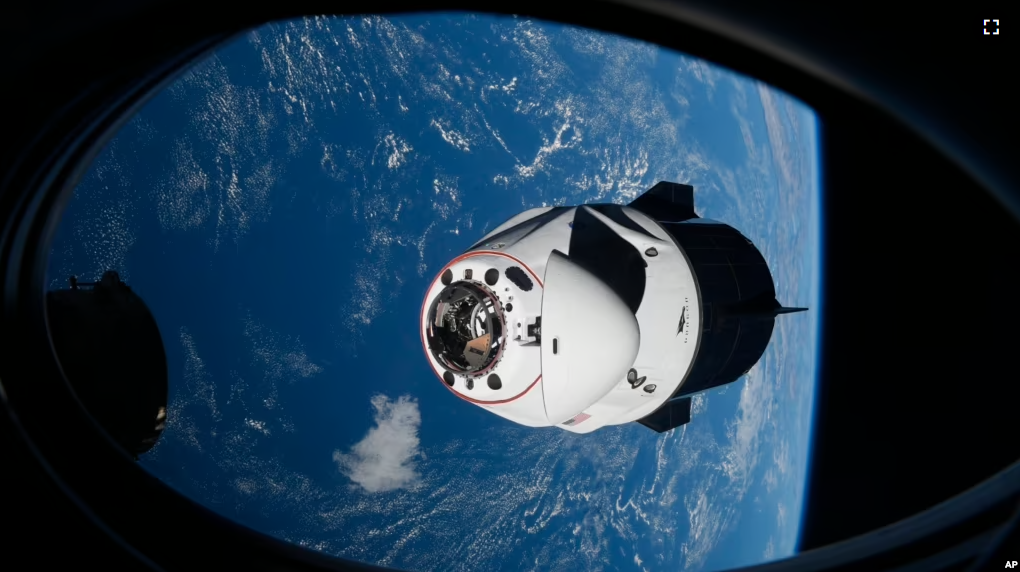The U.S. Space Command recently released a proposal aimed at reducing the “junk” orbiting the Earth in space.
Space junk might be a piece of metal that broke off from an orbiting satellite. Or it could be a whole satellite that is no longer powered on or controlled by the organization that launched it.
If other countries and businesses agree to follow the U.S. proposal, outer space could become much safer and cleaner.
Lloyd Austin is the U.S. Secretary of Defense. He approved the proposal, known as “Tenets of Responsible Behavior in Space,” in early March. It is not a legal document; it is a five-point list of so-called “best practices.”
One of the points reads: “avoid operating…in a way that may harmfully interfere with the function of (another) space object.” Another is “operate space objects through end-of-life disposal in ways that limit…long-lived debris.”
The other points relate to avoiding collisions, or crashes, between space objects, not interfering with an organization’s ability to control a space device and communicating ahead of time about a possible collision.
The main concern is that there are too many old objects in space that are no longer used. Those objects may get in the way of objects that are useful.
Government space agencies and private businesses are working to create some kind of order, especially in the part of space that is called low Earth orbit. That is where a number of internet satellites launched by Elon Musk’s company SpaceX are currently active. Amazon is also planning to launch satellites into that area.
Jack Deasy is a vice president for the company Astroscale, which is based in Tokyo, Japan. The company is testing a debris-removal device called ELSA. The device connects to space debris and pushes the objects towards Earth’s atmosphere, where they will burn up.
Deasy said the points included in the U.S. proposal should be adopted by the industry before something bad happens in orbit.
If something is not done soon and something happens in orbit, Deasy said he is worried the industry will make a fast decision in answer to an accident. He said, “That kind of … crisis-driven thing is not always the best way of setting up long-term policies that sustain the ecosystem.”
So far, Astroscale has raised $376 million for its space-cleaning program.
One of the investors is Japanese billionaire Yusaku Maezawa. He recently published a message on Twitter saying that garbage in space “can become a big problem in the future.”
While Astroscale is developing a system to remove space debris, other companies are working on creating devices that can capture old satellites and refuel them. The hope is that the old devices can be reactivated so they can be useful for a longer period.
Another company, Neumann Space of Australia, is working on a way to collect old satellites and turn them into fuel for currently active satellites.
The metal can be used to power new satellites, explained Herve Astier. He runs Neumann Space.
“Using the metal that’s already there, that’s a way to move forward in terms of sustainability,” he said.
Neumann plans to launch a test satellite in June.
I’m Dan Friedell.
Dan Friedell adapted this story for VOA Learning English based on a report by Reuters.
___________________________________________________________________
Words in This Story
junk–n. unwanted material, trash or garbage
tenet –n. a rule or idea accepted by many
practice –n. a way of doing something
debris –n. something unwanted that takes up space or is an obstacle
adopt –v. to put something into use
ecosystem –n. the place where something exists
garbage–n. unwanted material, or trash; something no longer useful
sustain–v. to keep something going for a long time
